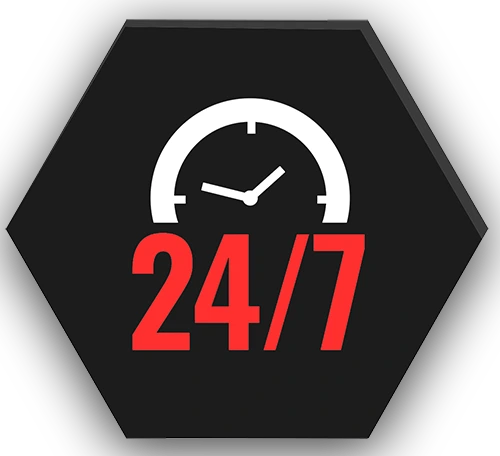Deciding when to replace your heating system is crucial for maintaining a comfortable and efficient home. An outdated or malfunctioning system can lead to frequent repairs, high energy bills, and inconsistent temperatures throughout your house. Understanding the signs that indicate it’s time for a replacement can help you avoid these issues and ensure your home remains warm and efficient.
Signs It's Time to Replace Your Heating System
Frequent Breakdowns
One of the most evident signs that it’s time to replace your heating system is frequent breakdowns. If your system needs constant repairs, it may be more cost-effective to invest in a new one. Multiple repairs can add up quickly and still leave you with an unreliable system. Frequent malfunctions also suggest that the internal components are wearing out, making it difficult for the system to function properly.
Rising Energy Bills
If you’ve noticed a steady increase in your energy bills, it might be an indicator that your heating system is becoming less efficient. Older systems often have to work harder to maintain the desired temperature, using more energy in the process. This inefficiency can lead to higher utility costs over time. A rise in energy costs, despite consistent usage, suggests that it may be time to consider a heating replacement.
Inconsistent Temperature Control
Inconsistent temperature control is another important sign to look out for. If some areas of your home are too hot while others are too cold, your heating system might not be distributing heat evenly. This can be frustrating and uncomfortable for homeowners. Inconsistent temperatures can be caused by issues like a failing thermostat, blocked ducts, or an aging system that can no longer perform efficiently. Replacing the system resolves these issues and ensures that your home remains comfortable.
Evaluating the Age and Efficiency of Your Heating System
Age of the System
The age of your heating system is a critical factor in determining whether it’s time for a replacement. Most heating systems have a lifespan of about 15 to 20 years. If your system falls within or exceeds this range, it may be more prone to frequent breakdowns and inefficiency. Even if it seems to be working fine, older systems are generally less efficient than newer models. Evaluating the age of your current system helps in making an informed decision about heater installation or replacement.
Efficiency Ratings
Efficiency ratings provide valuable insights into how well your heating system is performing. Systems with low efficiency ratings consume more energy and result in higher utility bills. Modern heating systems come with higher efficiency ratings, meaning they use less energy to produce the same amount of heat. If your current system has a low efficiency rating, replacing it with a newer, more efficient model can reduce energy costs and improve overall performance.
Comparing Modern Systems
When evaluating the efficiency of your current heating system, comparing it to modern systems is essential. Advances in technology have led to the development of heating systems that are not only more efficient but also more durable and user-friendly. Modern systems offer features such as programmable thermostats and variable-speed blowers, which enhance both comfort and efficiency. Comparing these features helps in deciding whether it’s time to upgrade your system for better performance and improved energy savings.
Benefits of Heating System Replacement
Improved Energy Efficiency
One of the primary benefits of replacing an old heating system is improved energy efficiency. Newer models are designed to use less energy while providing the same or better level of heating. Enhanced energy efficiency translates to lower utility bills and reduced environmental impact. Advanced technology and better materials in modern heaters ensure optimal performance with minimal energy consumption.
Enhanced Comfort Levels
A new heating system enhances overall comfort levels in your home. Modern systems offer more consistent and reliable temperature control, reducing the chances of hot and cold spots. Advanced features like programmable thermostats allow you to set and maintain your preferred temperature efficiently. Upgrading to a new system ensures that every room in your house is evenly heated, providing a comfortable living environment.
Long-Term Cost Savings
While the initial cost of a heating replacement can be significant, the long-term cost savings are substantial. Reduced energy bills, fewer repair costs, and decreased maintenance needs add up over time. Investing in a new, efficient heating system minimizes the risk of unexpected breakdowns and service calls, making it a cost-effective choice in the long run.
Choosing the Right Heating System for Your Home
Types of Heating Systems
When choosing a new heating system, it’s important to explore the different types available. Some common types include furnaces, heat pumps, and boilers. Each system has its own advantages and suitability depending on your home’s needs. Furnaces are known for their strong and quick heating, heat pumps offer energy efficiency, and boilers provide steady, even heating. Understanding these options helps in selecting the right system for your home.
Factors to Consider
Several factors should be considered when choosing a heating system. First, consider the size of your home and the specific heating needs of each area. Energy efficiency ratings are crucial in assessing long-term savings. Additionally, think about the system’s compatibility with your current setup and the environmental impact. Noise levels, installation costs, and maintenance requirements are also key considerations that can influence your decision.
Consulting with Our Professionals
Consulting with our professionals is the best way to make an informed choice. Our team can assess your home’s unique needs and recommend the most suitable heating system. We evaluate factors such as the size of your home, insulation quality, and budget to provide a tailored solution. Expert advice ensures that you make a cost-effective and efficient investment in your home’s heating system.
Conclusion
Deciding to replace your heating system is a significant step towards improving your home’s comfort and efficiency. Recognizing the signs that indicate it’s time for a replacement, such as frequent breakdowns, rising energy bills, and inconsistent temperature control, is essential. Evaluating the age and efficiency of your current system helps in making an informed decision. Understanding the benefits of a new heating system, including improved energy efficiency, enhanced comfort levels, and long-term cost savings, can make the investment worthwhile.
For expert consultation and top-notch heating replacement in Salt Lake City, trust Jones Heating & Air Conditioning. Contact us today to discuss your heating needs and discover how a new heating system can enhance your home!






